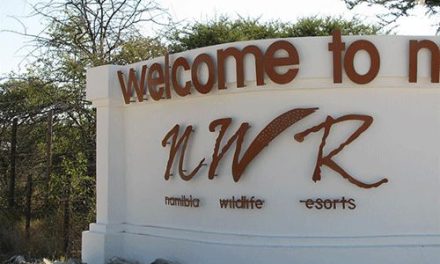
Longer contracts proposed for communal trophy hunting
Contracts awarded to professional trophy hunters will soon be moved from one year to a three year contract. This is one of the recommendations made at a trophy hunting workshop held in December 2012.
According to Greenwell Matongo from the World Wildlife Fund in Namibia, lengthening contracts could prove to be more desirable but pointed out that the awarding process must be flexible and should be done through a tender process. “We should move from having yearly contracts to lengthy ones in order to increase benefits to conservancies,” said Matongo.
Matongo was presenting feedback to a workshop of conservancy representatives during the annual Communal Conservancies Chairpersons Forum held in Windhoek this week. The workshop deliberated on the importance of Trophy Hunting to conservancies in terms of job creation, income generation, community development as well as meat and conservation. It also touched on the tolerance issues of living with wildlife and the inter-linkage of the benefits to wildlife conservations.
Matongo said trophy hunting contributed enormously to national development and since the introduction of the Community Based Natural Resource Management (CBNRM) programme, wildlife populations has increased. In 2011, the contribution from trophy hunting was estimated to be N$25 million, which according to Matongo contributed to community development and poverty reduction.
Issues raised by conservancies included illegal cross boundary hunting, the complexity of contracts and the lack of payments made to conservancies by the hunters. Addressing the issues raised, Matongo proposed that to avoid illegal cross boundary hunting, people accompanying hunters must know where their hunting boundaries start and end and to avoid misunderstanding, contracts should be translated in the vernacular languages for each respective constituency.
He also said that to avoid conflict, operators in conservancies should sign agreements and also share information between themselves and professional hunters. He said shooting and selling needs proper control and monitoring. “Even if we have a good contract, without a proper monitoring system, that contract is useless,” said Matongo. There are currently templates for shooting and selling as well as for trophy hunting.
Trophy hunting is considered to be a lucrative industry in the wildlife sector. It removes mostly old, post reproductive animals or single males; hence it contributes towards sustainable use of wildlife populations. In Namibia, trophy hunting takes place on commercial farms and registered communal conservancies as well as in proclaimed protected areas and other state land. The country is ranked third in the trophy hunting industry in Africa after Tanzania and South Africa but in strong competition with Botswana, Zambia, Zimbabwe and Mozambique.
The Ministry of Environment this week announced this year’s trophy hunting season which started on 1 May and will last until 31 August 2013.












































